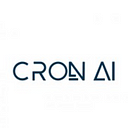Brian Fahy recently joined us as our new principal director for hardware engineering. Before joining the team, Brian was the Head of Electrical and Electronics Engineering at Lockheed Martin, and served a little more than a decade at GE Intelligent Platforms.
At Cron AI, we’ve built a reliable, robust software backend and Brian will be taking on the challenge of providing equally efficient embedded edge hardware to embody our senseEDGE platform aimed to accelerate 3D sensors. As a widely acknowledged and established leader in the electrical and electronics space, we are thrilled to have him onboard and to learn from his unrivalled expertise.
In this article, we enjoy getting to know Brian some more and hearing his thoughts on the industry and the opportunities ahead.
How did you get into this line of work?
It was primarily because of my interest in electronics and how it appealed to me. When I was starting college, this was a new course that was being offered and it sounded very interesting. Computers had just started taking off at that time. I am talking about the age of the Sinclair ZX80/ ZX81 and the early Commodore computers. I bought my first computer at age 16 and there was no looking back. Talking to most engineers, they will tell you that they love understanding how things work (or don’t) and I was very much in that bracket. I remember one time I discovered that my tv had stopped working just before the England vs Cameroon World Cup game. I took the back off, found a track had been blown off in the previous night’s lightning storm and soldered a wire across it. It worked a treat and England won 3–2.
Choosing hardware rather than software was a more of a subconscious decision. I used to write some software too but it just wasn’t as tangible in the sense that I couldn’t get my hands on it. I went for hardware perhaps, because I am a more tactile person. Any engineer will tell you that after several months designing and getting a new board made, there’s a real buzz when you get that first prototype in your hands to start testing. I feel the same rush when I see the first prototype today as I did a few decades ago.
Have you had any role models or anyone you admired in the industry?
A few years ago my son introduced me to this book called Principles by Ray Dalio. He had an interesting take on things — he was in finance and went on to set up one of the world’s biggest hedge funds. I liked how he did things differently to give himself a competitive edge. One such thing he did was pioneering the use of big data to analyse and predict the stock market. This is very much like modern day machine learning — recognising patterns and predicting the future. Another thing he did differently was the way he ran his company and treated his people. It’s a good read.
I also have a high regard for the usual industry favourites — Bill Gates, Elon Musk, Steve jobs — these are people that have built extremely successful concepts multiple times. They are always happy to take a risk and push the boundaries and I respect that.
Thinking about AI as a whole, what do you think are the biggest challenges that have been overcome?
One of the biggest things I guess is that AI has now been demonstrated to work really well in certain applications and so can attract better funding. Just look at the benefits of email spam filtering and smarter internet searches for instance. Also, we now have far more computational power available to make sense of the data we are taking in — and so can undertake tasks of much greater complexity.
What do you like most about working in this industry?
It’s a relatively young industry that is still finding new and innovative applications. There are smaller, more powerful Lidars coming out regularly, chipsets being released that are directly aimed at ML.
This is all coming together right about now so this is a very exciting time to be in the midst of it.
Looking ahead, having recently joined the business, what do you think is the biggest opportunity for Cron AI now?
This is an interesting time for companies like Cron AI because I see great convergence between what Cron is aiming to achieve and the AI and ML industry on the whole. A lot of the challenges were previously being solved with cameras, today we have Lidars.
